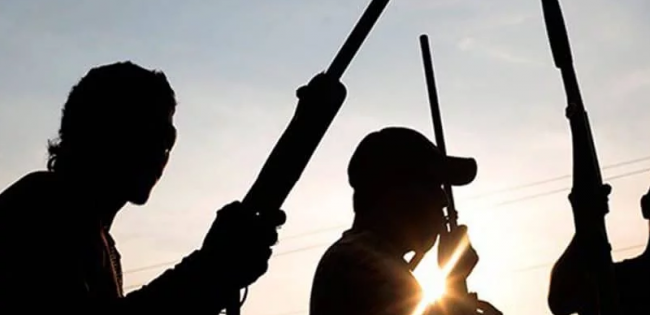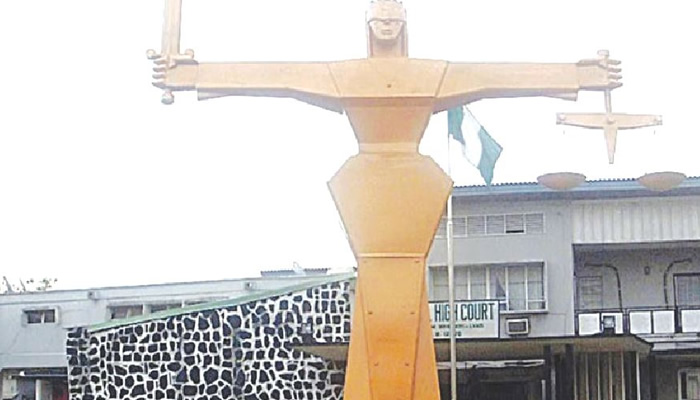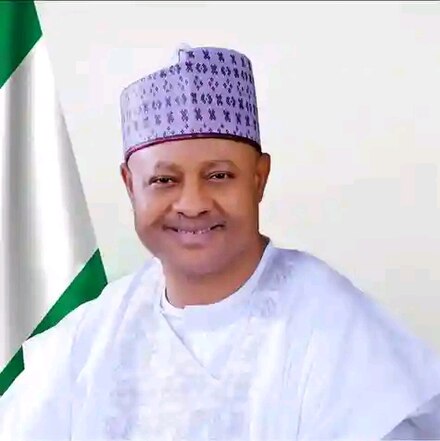The Department of State Services (DSS) has distanced itself from the contentious arrest of Nnamdi Kanu in Kenya, reigniting public scrutiny over the opaque circumstances surrounding the IPOB leader’s international capture and extradition in 2021.
At the resumed terrorism trial of Kanu on Monday at the Federal High Court in Abuja, a DSS official—testifying as the second prosecution witness—claimed the agency played no role in the controversial operation that led to Kanu’s forced return to Nigeria. “I was not involved in his arrest in Kenya. The DSS does not conduct foreign operations,” the witness told the court under cross-examination.
The testimony has intensified the legal and ethical debate over the legality of Kanu’s rendition, particularly as multiple courts have faulted the federal government for violating his fundamental rights.
Three Court Judgments Admit Kanu's Detention Was Unlawful
During proceedings, lead defence counsel Paul Erokoro (SAN) tendered three separate judgments from courts in Umuahia and Enugu which declared Kanu’s arrest and continued detention illegal. The court admitted them into evidence, further complicating the federal government’s position.
Despite this, the DSS witness maintained that the agency’s only involvement was the arrest of Kanu in Lagos—after he had already been brought into the country under questionable circumstances.
“The DSS is under the office of the National Security Adviser and is not directed by political appointees or politicians,” the witness added, responding to questions on whether the agency was acting under political influence.
Testimony Triggers Larger Debate on Double Standards and Self-Defence
Perhaps most damning was the witness's apparent lack of awareness about the broader context surrounding Kanu’s arrest, broadcasts, and self-defence claims. When asked whether Kanu’s alleged calls for his followers to defend themselves against armed state aggression could be seen as self-defence, the witness stated: “I am not aware of any law in Nigeria that allows anyone to kill a fellow human.”
He also said he had not heard of any DSS directive supporting civilian self-defence, even though former Defence Minister Gen. Theophilus Danjuma had once publicly claimed that Nigerian security forces were complicit in the country’s insecurity.
The DSS officer, however, acknowledged that peaceful agitation was not criminal, but insisted Kanu had crossed the line by allegedly inciting violence and the killing of security personnel.
Political Undertones and the Ghost of Biafra
When confronted with historical references—such as Nigeria’s colonial independence struggle or the legacy of Chukwuemeka Odumegwu Ojukwu—the DSS witness admitted he knew Nigerians who called for independence were never branded as terrorists. Nonetheless, he described Ojukwu as “a Nigerian Army officer who decided to wage war against Nigeria” and denied that Biafra has ever been recognised as a legitimate entity.
The comment triggered murmurs in the courtroom, as critics argue that Kanu’s trial has evolved into a politically charged battle over the right to self-determination.
Legal Drama Intensifies Over Delays and Online Conduct
The court proceedings took another twist when Justice James Omotosho issued a stern warning to the defence team over delays in cross-examining the witness. The judge gave the defence until May 22 to wrap up questioning or risk being deemed to have closed its case.
Adding fuel to the fire, both the lead defence lawyer Kanu Agabi (SAN) and prosecuting counsel Adegboyega Awomolo (SAN) raised concerns over misrepresentations of court proceedings allegedly made by defence lawyer Alloy Ejimakor on social media. Awomolo, visibly irked, said court proceedings were being livestreamed and distorted by lawyers involved in the case—an act he warned could attract disciplinary action.
Justice Omotosho echoed those concerns, warning that misconduct by legal practitioners could result in disbarment. “Let us act well,” the judge cautioned, without naming names. Ejimakor, who sat silently throughout the exchanges, was at the centre of the accusations but did not speak in his defence.
Trial Resumes Today Amid Rising Tensions
As the trial continues, Nigerians remain divided. Critics argue that the case is a calculated move to silence dissent, while others believe Kanu must face justice for inciting violence. Still, the unanswered questions around his arrest in Kenya persist.
If the DSS was not involved—and the Kenyan government has refused to publicly clarify its role—then who orchestrated the international operation that brought Kanu back to Nigeria?
The legal fight may be playing out in court, but the political battle is clearly far from over.




